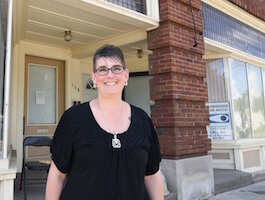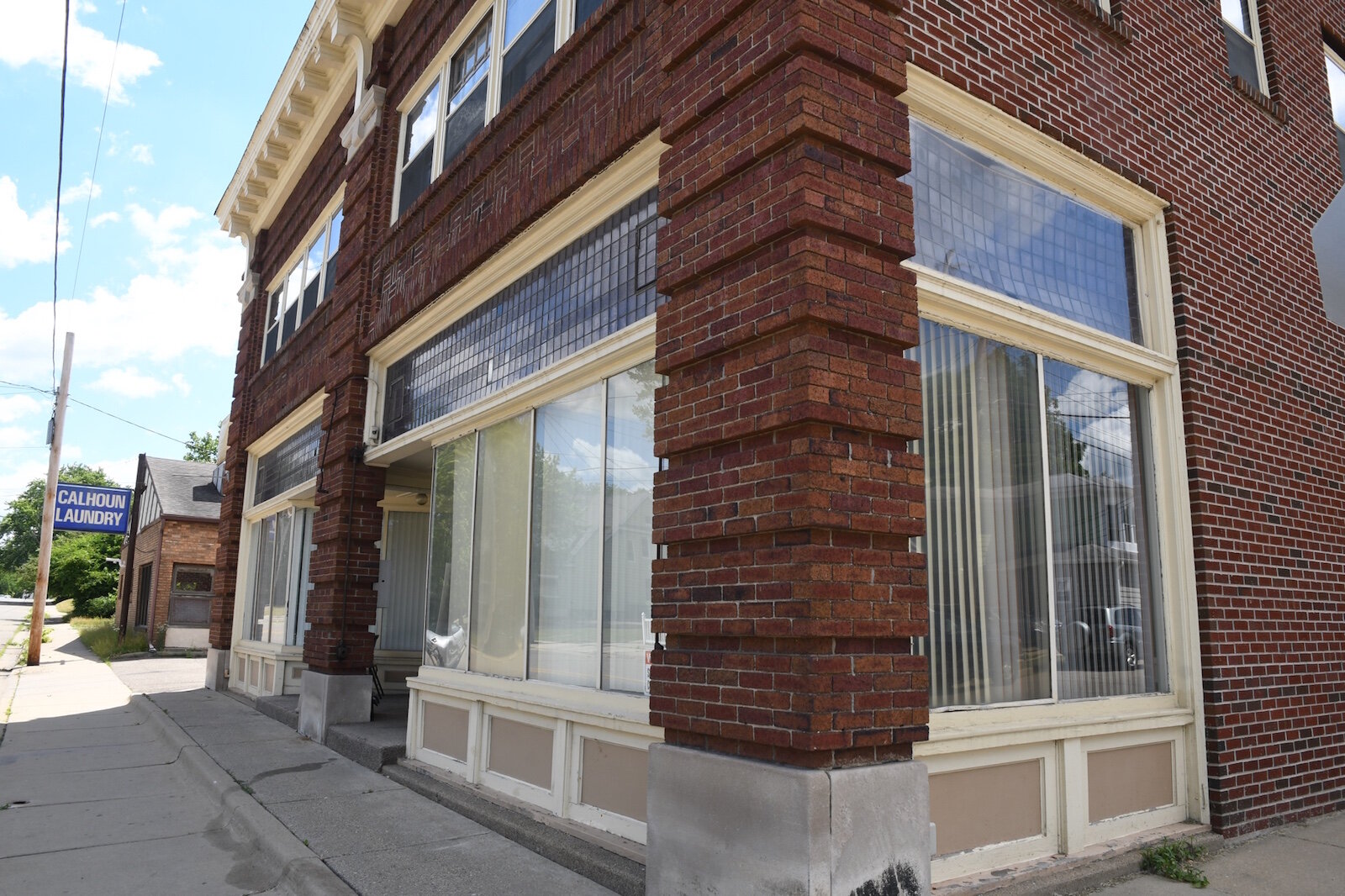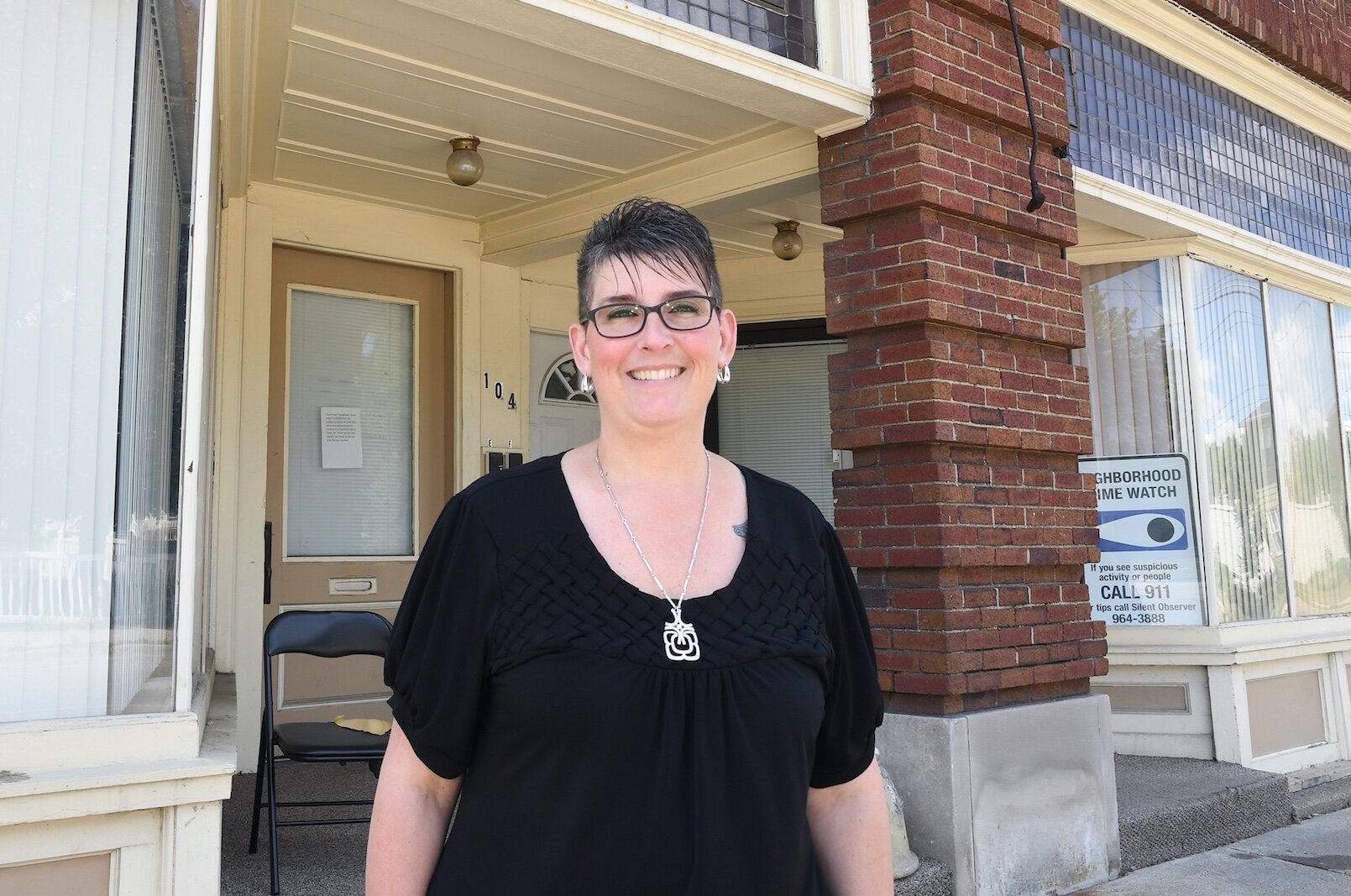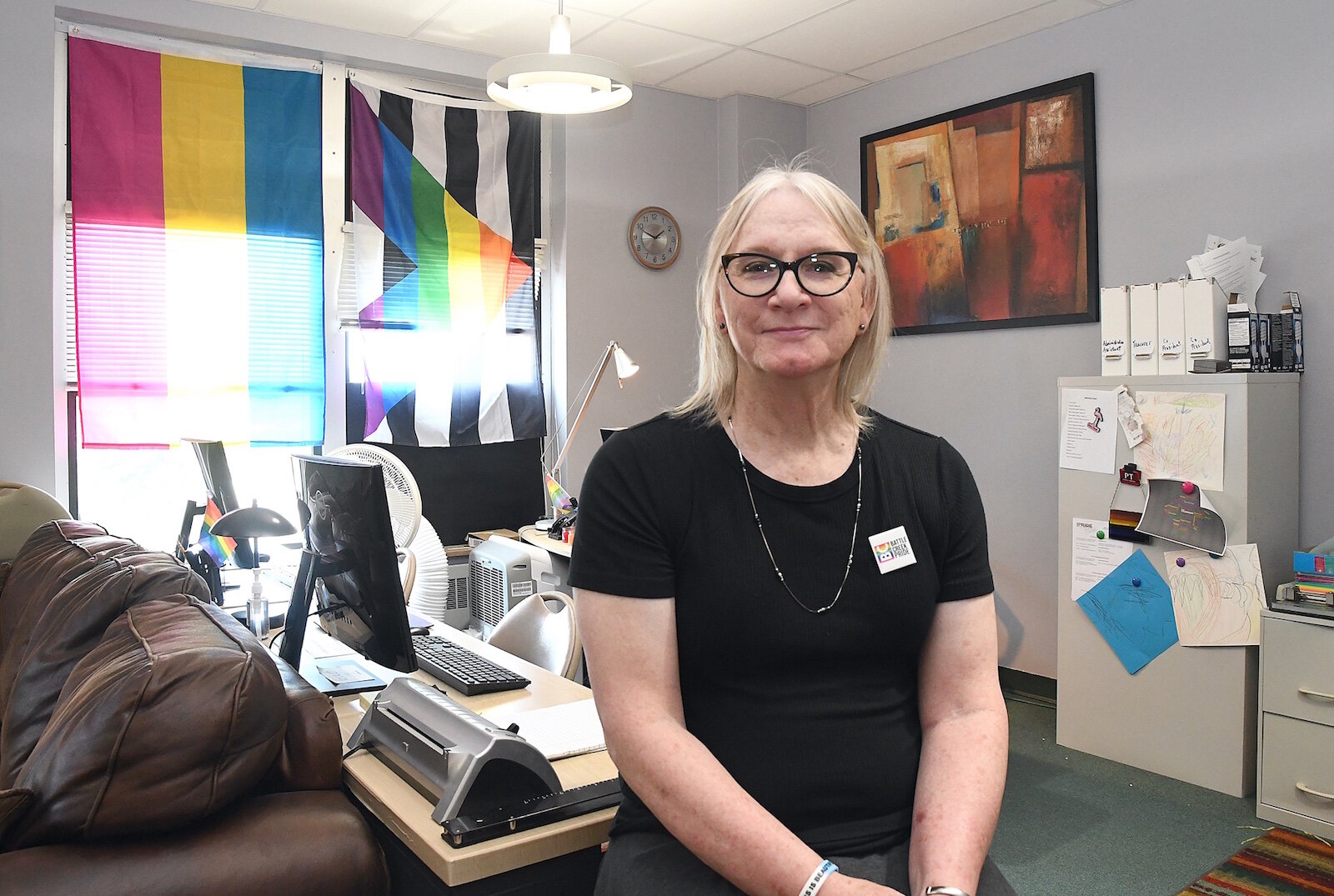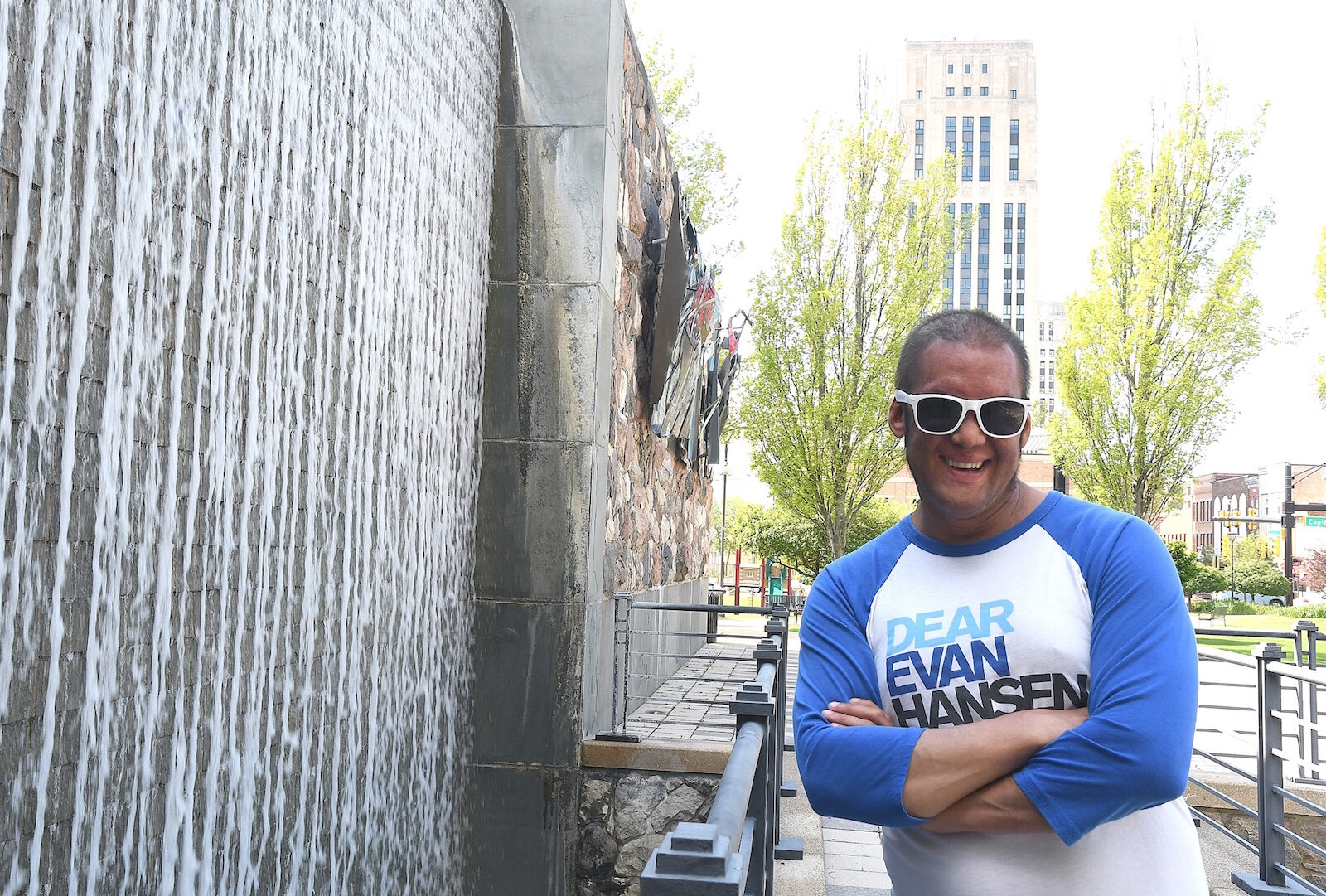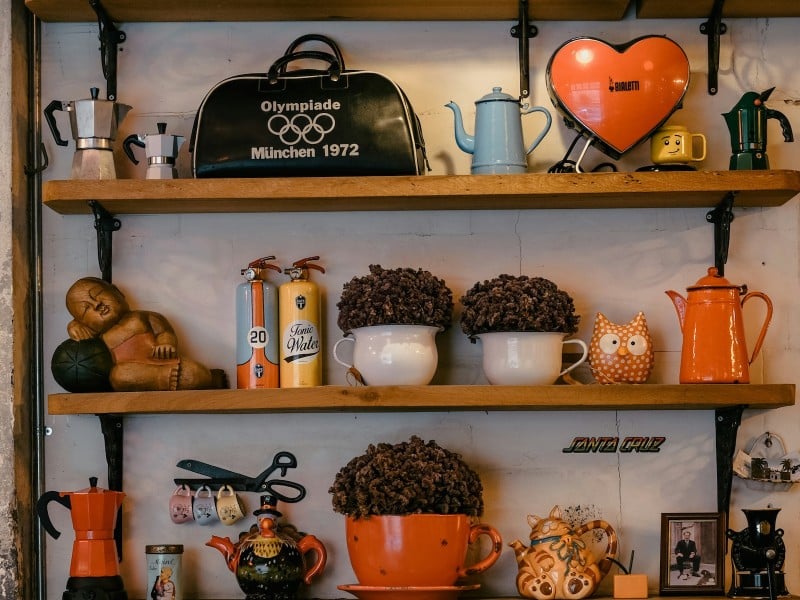An open house for the public to see BC Pride’s new headquarters is scheduled to take place from noon to 4 p.m. on the Saturday of Pride Week in Battle Creek which runs July 19-July 25.
The appearance of gay pride flags in Marshall is symbolic of the strides made by the LGBTQ+ community in Calhoun County, says Kim Langridge, Co-President of BC Pride.
“I live in Marshall and five years ago I never saw a Pride flag there,” says Langridge, a transgender woman. “For me, seeing these flags means that it’s becoming easier for people to come out and say who they are and that they belong to this (Marshall) community.”
It used to be that flags and other items bearing the iconic Pride rainbow were brought out of the closet in June, officially recognized as Pride Month in the United States and throughout the world, only to be put back in the closet at the conclusion of Pride celebrations. Langridge says she now sees signage with the Pride rainbow becoming part of more permanent displays of support at an increasing number of businesses in Battle Creek and other parts of Calhoun County.
This, she says, is emblematic of a growing meaningful acceptance of the LGBTQ+ community here and the significance of the diversity that they bring to the table.
Battle Creek Unlimited formally recognized this with the rollout in February of their TRAIN (Talent Retention, Attraction, and Inclusion Incentive) program that will help Battle Creek employers encourage new or existing employees to move to Battle Creek. The program will commit at least 40 percent of financial awards to underrepresented demographics, including women, persons of color, and members of the LGBTQ+ community.
Charlie Fulbright, past President of BC Pride, says he was surprised and grateful that BCU leadership reached out to him to get his thoughts on language in TRAIN documents specific to the LGBTQ+ community prior to the program’s launch.
“When that first happened, Joe (Sobeiralski, President and CEO of BCU) gave me the form beforehand to see if any language needed to be added,” Fulbright says. “I was super stoked that he came to us because we’re often overlooked. I thought, here’s another step forward that the community is doing something to support us.”
Fulbright says he also is encouraged by the dedicated commitment from local employers to establish groups within their organizations that give their LGBTQ+ employees a seat at the table.
“What excites me is that PNC and Kellogg and small businesses that are local support us. They don’t just put out a rainbow in June and by July it’s gone. That excites me because it’s not just a rubber stamp,” Fulbright says.
But, the journey from tolerance to acceptance is not without its share of setbacks and disappointments, the most recent example being a collaborative effort between BC Pride and Calhoun County Commissioner Jake Smith to change Calhoun County’s equal employment opportunity policy to add specific language protecting LGBTQ+ individuals.
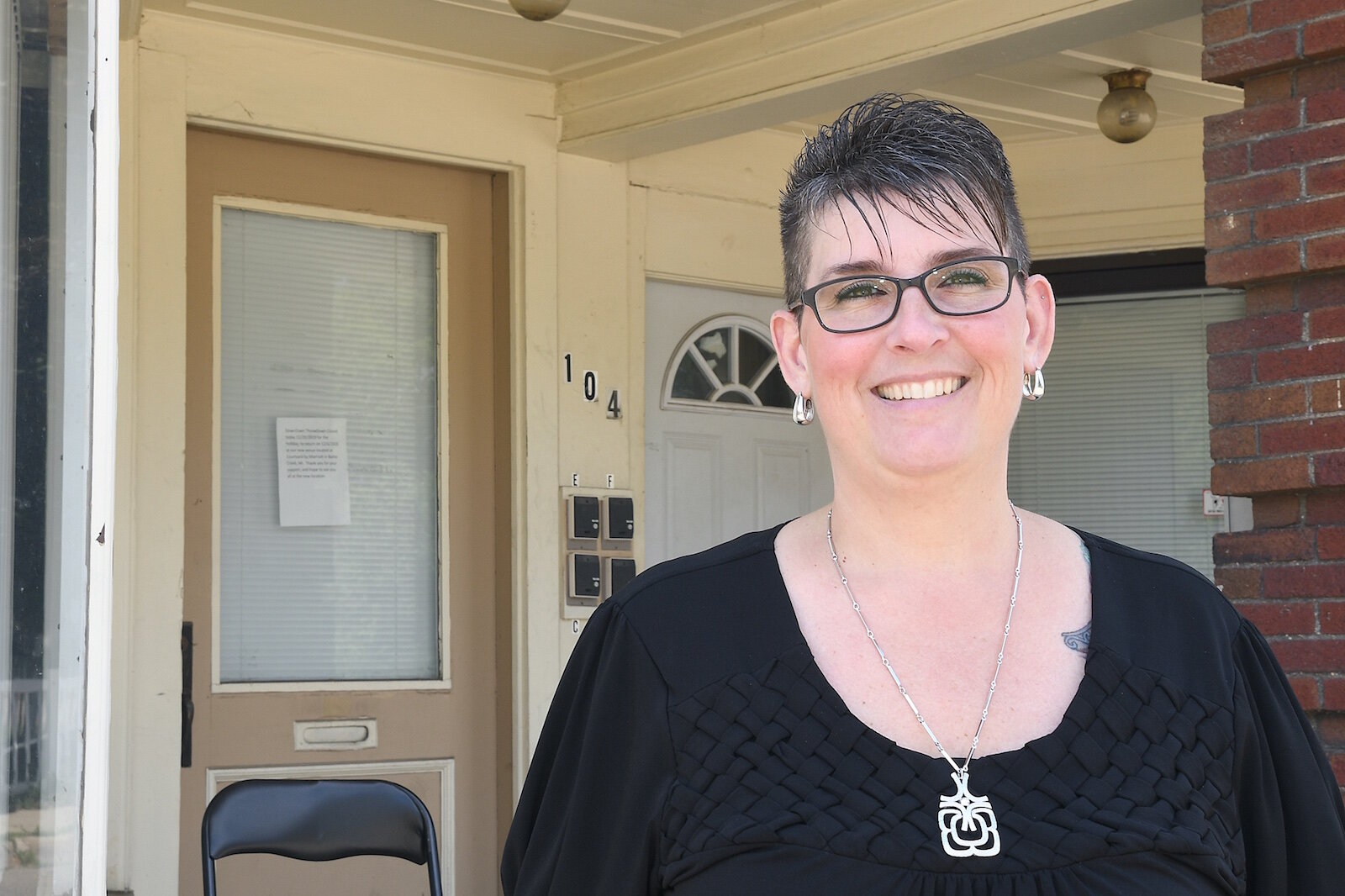
Deana Spencer, who serves as BC Pride Co-President alongside Langridge and has long been the face of the local LGBTQ+ community, says this is the fifth consecutive year that Smith has tried to get the language change on the Commission’s agenda. This has not yet happened and she and Smith are continuing their work.
“I know that there are communities around Michigan who promote how welcoming they are. This attracts professionals and non-professionals, increases the tax base, and contributes to their vibrancy,” Langridge says. “I think it means a lot, not only financially but in many other ways to have allies with pull and power. People pay attention to what they say and the positions they take.”
As Spencer and Smith focus on the acceptance and approval of these language changes, Spencer says BC Pride will continue its focus on providing services and support to members of the LGBTQ+ community while also advancing its agenda in all sectors of the community.
A real home
In early July, BC Pride will move from its current location at First Congregational Church into its first-ever stand-alone headquarters at 104 Calhoun St. The organization, which got the keys to the building June 15, will occupy the lower half of the two-story building owned by Neighborhoods Inc. of Battle Creek, which has signed a two-year lease agreement with BC Pride.
The new space will enable BC Pride to expand its programs and services, including support groups for both adults and youth, Spencer says. Renovations will include the addition of a computer center with internet access, a conference room, lounge, a games and recreation area, and two small kitchens.
It’s a leap of faith for an organization that relies on donations and volunteers to get its work done.
“We got a grant for the signage but not for utilities or rent so we haven’t gotten a big grant to support us,” Fulbright says of the new resource center. “We have fundraisers and sponsorships and donations and that’s what we survive on. Our biggest fundraiser is our Pride festival which has live entertainment and vendors. We are always looking for funding.”
Spencer says the decision to move BC Pride into its own space was motivated by people who have expressed concerns about meeting in a church space. In addition to FCC, BC Pride also has rented space at St. Thomas Episcopal Church.
“The two churches we have rented from have been amazing to us, but there’s a lot of stigma that goes with being in a church because LGBTQ+ people have faced discrimination by the Church,” she says. “We’re hoping that by moving our people to this new resource center, they will feel a little more safer and comfortable.”
The new space will be staffed by volunteers who will make it possible to have regular hours of operation.
“Now that we have our own building with easy access, I’m hoping that there will be a lot more LGBTQ participation in our community,” Langridge says. “We will be more visible and easy to get to and right there for everybody to come and visit.”
The resource center, she says, is for all members of the community, not just those who identify as LGBTQ+.
“We are always looking for allies to come alongside us,” Langridge says.
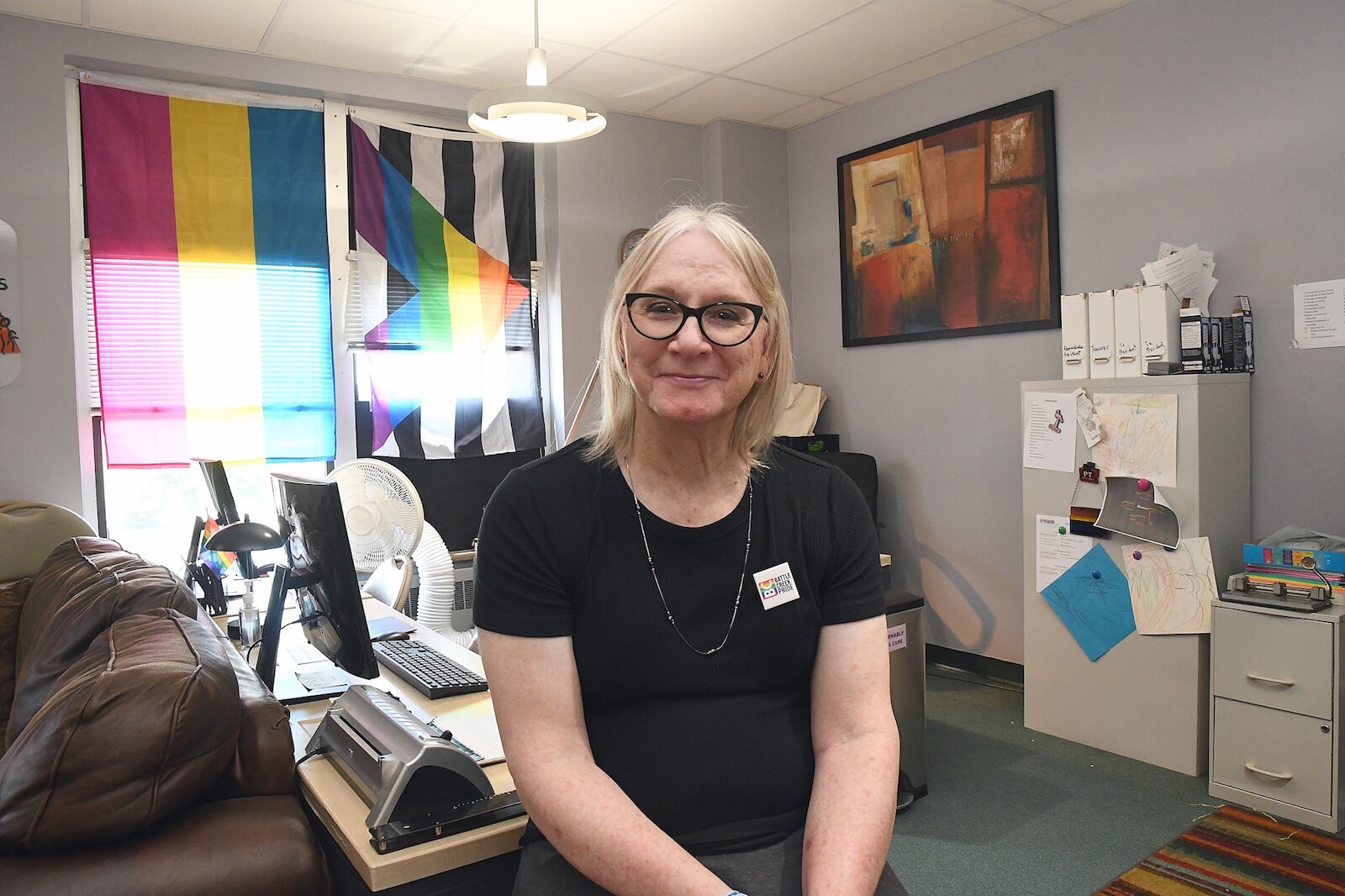
An open house for the public is scheduled to take place from noon to 4 p.m. on the Saturday of Pride Week in Battle Creek which runs July 19-July 25. While June is recognized nationally as Pride Month, Battle Creek traditionally celebrates in July so the events don’t overlap with those in other cities. This year’s celebration will feature a combination of in-person and virtual events.
Not all rainbows
While the new resource center is a culmination of efforts for an organization that began in 2010 with meetings at peoples’ homes, BC Pride’s overarching mission continues to be a work in progress.
The decision to locate a future mural for the new resource center on the upper area of the building is an example of the work that remains. Spencer says there were concerns that the mural could be defaced if it was placed at street level.
The artwork also is being used as a substitute for crosswalks in the city that were painted in 2019 in the colors of the Pride rainbow. The crosswalks drew the ire of many residents, which surprised Spencer.
“The crosswalks were only allowed for a few weeks and then they had to be painted over,” she says. “We knew there would be some reaction but we didn’t expect it to be so much. People hate what they don’t know or don’t understand. Even people who live their lives in unsavory ways will quote from the Bible ad nauseam. It’s so ingrained in them that being gay is wrong.
“There are people who aren’t willing to take a step back and learn and come up with another way of thinking. We’ve had too much of that here. Yet, I know there are a lot of wonderful people here who want change. But it’s really difficult. I think it’s a challenge because everybody’s walking this scary little tightrope.”
Many in the LGBTQ+ community have become adept at walking that tightrope out of necessity.
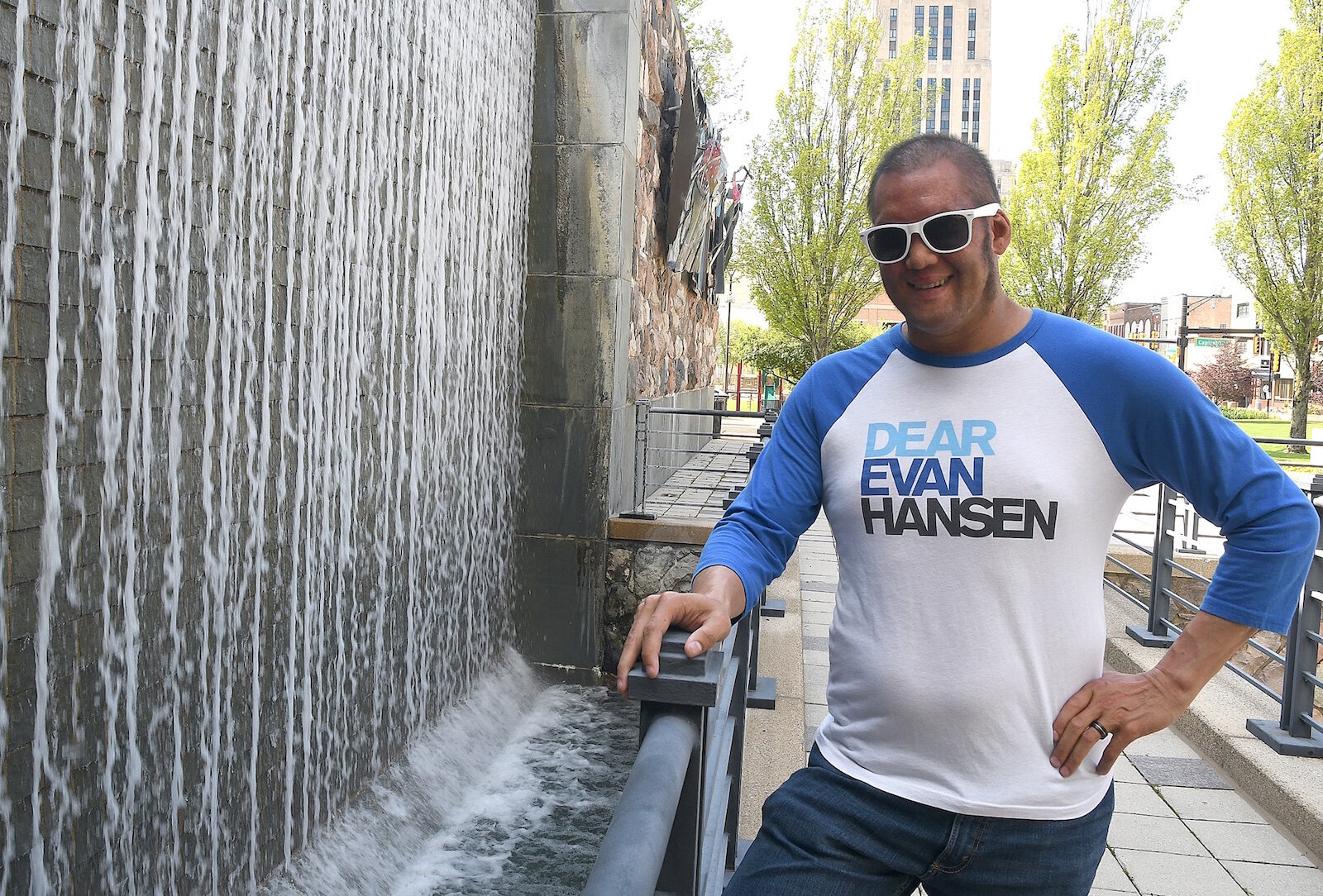
For some of them, the process of coming out has been a painful and difficult journey. But once they made that decision, they say they found community and a sense of belonging that has given them the confidence to be who they are.
It has been three years since Langridge, a lifelong resident of Marshall, came out as a transgender woman. With encouragement from her therapist, she connected with BC Pride.
Born in 1955, Langridge says at the time she was growing up the word “transgender” had yet to make its way into the everyday American lexicon. Despite the lack of a way to define her sexuality in her childhood, she says she knew from age 5 that this is who she was and that it was “not something you should talk about.”
“I grew up about the way you would imagine I grew up, with white and straight and male privilege,” Langridge says. “I voluntarily abandoned two of those when I came out.”
That white privilege that remained left Langridge relatively unscathed after she came out. The worst of it was losing some friendships that she says is a small price to pay in comparison to what transgender women of color endure. For example, Ashley Diamond, an American transgender civil-rights activist, sued the Georgia Department of Corrections twice for housing her with male inmates and refusing to provide medical treatment she’d been receiving since she was a teenager.
From inside the prison, Diamond partnered with the Southern Poverty Law Center (SPLC) to file a class-action lawsuit against the Georgia Department of Corrections. The case was settled for an undisclosed amount, the Georgia Department of Corrections changed its medical treatment policy for transgender prisoners, and the U.S. Department of Justice became involved, saying that prisons must treat hormone therapy as they would any other medical condition.
In 2015 Diamond was released on parole after having served three years of an 11-year sentence. In 2019 she was arrested on a technical parole violation and is once again being housed in men’s prisons where she has been sexually assaulted more than 14 times in the past year by other incarcerated people and Georgia Department of Corrections staff, according to a federal civil rights lawsuit filed on her behalf by the Center for Constitutional Rights and the Southern Poverty Law Center. Her case has also sparked Free Ashley Diamond, a national movement to raise awareness about her case, provide her with support, and ultimately free her from prison.
They might not receive the headlines as Diamond did, but Langridge says every individual who seeks support and counsel from BC Pride should know that their story and experiences are every bit as important as those whose situations are in the national spotlight.
Despite, Langridge’s comfort level which extends to handing out Pride buttons and bracelets to those she has conversations with, she says she knows there are many in the community who are unable to come out for a number of reasons.
“I know someone who is a business owner and is transgender but has to be very careful about who she communicates with. Were she to come out, she knows she would lose business and couldn’t make a go of it,” Langridge says.
Fostering a safe and nurturing environment, no matter what decisions people feel they have to make and empowering them to be their authentic selves is a message that Fulbright says he and his BC Pride colleagues will continue to push.
He says the organization is making a point of getting involved in events and activities sponsored by the African American, Burmese and Latinx communities in the city and the county and also ensuring that communications like their strategic plan are translated into Burmese and Spanish.
“We’ve come a long way as far as being an LGBTQ organization. We never had a trans person on our board until Kim. This shows how much even in our own community we have been disengaged with the trans community or the BIPOC community. Trans women of color are at the top of that list of people who are murdered or hated on. It’s not just white people. We need to make sure we bring everybody along.”
Spencer says it’s definitely a two-way street. She says there’s been a lot of progress in terms of the LGBTQ+ community’s involvement with community events or organizations.
“I always feel like the first time I’m invited to sit on a board or have a seat at the table that it means we’ve made it and that we’re no longer being overlooked,” she says. “People are asking us to the table because they want our feedback and input and I still always feel like that means we’ve made it. It’s silly that I still feel that way. Representation and having a voice is so important.”

